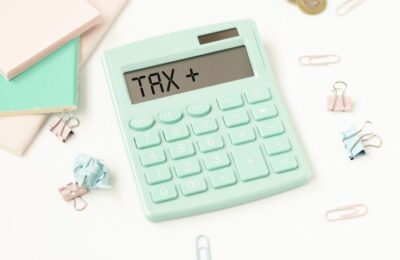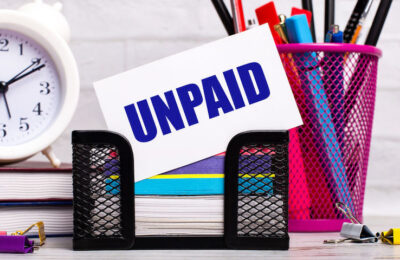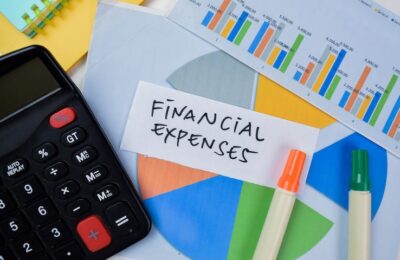At the moment, it certainly seems as though HMRC is putting a lot of energy into clawing back some of the billions spent on the various COVID-19 support schemes. As we reported recently, tax investigations are on the rise. Similarly, the Daily Telegraph tells us that HMRC is cracking down on careless mistakes in tax returns. Against this backdrop, anecdotal evidence suggests that the taxman also has restaurants and hotels in his sights. HMRC has launched a number of investigations centred on tips, gratuities and service charges. But do you pay tax on tips? The answer is surprisingly complex.
In this article, we’ll give you a brief guide to the difference between tips, gratuities and service charges. We’ll also explain what’s taxable, what isn’t and who’s responsible for reporting payments to HMRC.
What is a service charge?
A service charge is a fee that is added to a customer’s bill before being given to them. There are two types of service charge: discretionary and mandatory. For a service charge to be considered discretionary, the customer must be aware that it is voluntary. Normally this is explained on the bill itself. Mandatory service charges are not optional.
Tax and mandatory service charges
Standard rate VAT must be paid on mandatory service charges. In addition, PAYE and National Insurance must be deducted on any payments to employees.
Tax and discretionary service charges
No VAT is payable on discretionary service charges. For tax and National Insurance purposes, a discretionary service charge is deemed to be a tip.
What is a tip / gratuity?
A tip, gratuity or discretionary service charge is a voluntary payment by a customer. No VAT is charged on these payments. They are subject to Income Tax, but it depends on circumstances whether or not they incur National Insurance
When a tip / gratuity is exempt from National Insurance
A tip is exempt from National Insurance if either of these two criteria are met:
- It is not paid (directly or indirectly) by the employer to the staff member. It is not money previously paid to the employer (by customers or others).
- The employer does not control (directly or indirectly) who receives the tip or the amount they receive.
There are two main situations where these criteria are met:
- The customer gives the tip directly to the employee and they keep it solely for themselves. In such a case, the employee should notify HMRC about the tip.
- There is a tronc scheme in which the employer has no direct or indirect involvement.
What’s a tronc scheme?
In a nutshell, a tronc scheme (TS) is a special arrangement set up for paying out tips. It should be run by a troncmaster (see below). The employer must tell HMRC when the tronc was set up and who the troncmaster is. HMRC will then set up a special TS PAYE scheme. It’s possible to set up more than one tronc scheme within a business. However, the records for each one must be kept separate from each other and separate from the main business payroll.
About the troncmaster’s role
The troncmaster (TM) can be an individual or a third party. They must not be the employer or anyone closely connected with them. The TM pays out tips to the tronc members (employees) and deducts Income Tax beforehand. They then pay out the taxes to HMRC. If the TM doesn’t operate the PAYE scheme properly, they can be held personally liable for any outstanding tax.
How a tronc scheme avoids National Insurance
Tips and gratuities paid into the tronc scheme avoid National Insurance as long as:
- The tips have not come from a mandatory service charge
- The employer does not directly or indirectly influence the TM on who receives tronc payments, or on the amount.
In practice, this means:
- The employer must not collect all the tips and pass them to the TM
- The employer must not have a points system that determines who gets tips and in what amounts. If they do, the TM must not follow this system when paying out tips.
If these rules are not followed, both Income Tax and National Insurance are due on the tips. In addition, the employer must account for the NI via the main business payroll.
Do you pay tax on tips? Final thoughts
“Do you pay tax on tips?” may be a simple question, but the answer can be surprisingly complex. In brief, if a service charge is mandatory it attracts VAT and the employer must deduct PAYE and NI. If a service charge is discretionary, it is treated as a tip or gratuity. These avoid NI as long as the tip is paid directly by a customer to an employee or if tips are administered by a compliant tronc scheme.
If you would like any advice on administering tips within your hospitality business, please do get in touch. One of our payroll experts would be delighted to help you.
About Karen Jones
Having worked for one of the world’s largest accountancy firms, Karen Jones uses her tax knowledge and skills to help clients obtain substantial reductions to their tax liabilities.
With an expanding portfolio of tax clients, Karen enjoys the variety her work brings her and particularly likes working with new businesses and people. With a growing number of tax clients, she frequently faces a variety of challenges and relishes the experience she gains as she solves them.
Karen likes the THP ethos: “I like the way the team has a professional, but friendly and down-to-earth approach – it creates a productive atmosphere that benefits everyone.”
Karen’s specialist skills:
- Personal Taxation
- Tax Efficient Planning
- Trust Administration












